Aziz Bensalah Science and Society in Morocco: What role for Public understanding of science? Professor at the National Centre for Scientific and Technical Research in Rabat, Morocco | Massimiano Bucchi Science communication research over fifty years – patterns and trends (with Brian Trench) Professor of Science and Technology in Society at the University of Trento, Italy
| Cheng Donghong Developing a Science Museum System with Chinese Characteristics: Strategy, Framework, Mechanism and Evaluation Vice President and Executive Secretary of the China Association for Science and Technology (CAST), Beijing, China |
Sook-Kyoung Cho Curating the future: the science museum for creativity and sustainability Director of the Korea Foundation for the Advancement of Science & Creativity, Seoul, South Korea
| Alan Irwin Citizen Science and Scientific Citizenship: same words, different meaning? Professor and former Dean of Research at Copenhagen Business School, Copenhagen, Denmark | Pierre-Benoît Joly Science-Society Relations Seen through the Prism of Techno-Scientific Promises Research Director at the INRA, director of the Laboratoire Interdisciplinaire Science Innovations Sociétés (LISIS), Paris, France |
Pablo Kreimer Public Understanding of Science and Science and Technology Studies: convergence or parallel paths? Director of the “Ciencia, Tecnología y Sociedad” Center, Universidad Maimónides, Buenos Aires, Argentina | Jean-Yves Le Déaut 30 years at the OPECST, 30 years evaluating before legislation Member of Parliament representing the Meurthe-et-Moselle in the French National Assembly, Président of the OPECST, France | Marc Lipinski Citizens in science Doctor in Medicine and Biochemistry, Director of Research at the National Center for Scientific Research (CNRS), France |
Elizabeth Rasekoala Science Communication in a Post-2015 World: the nexus of Trans-national, Multi-disciplinary and Socio-cultural contexts Chair of the Pan-African Solidarity Education Network (PASEN) - International. | Brian Trench Science communication research over fifty years – patterns and trends (with Massimiano Bucchi) Independent researcher, evaluator and trainer in science communication, formerly Head of School at the School of Communications in Dublin City University, Ireland | Brian Wynne Babel Unbound? What are We Communicating, when We Communicate Science? Professor of Science Studies at Lancaster University, Department of Sociology, United Kingdom |
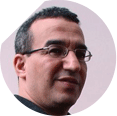 Aziz Bensalah
Aziz Bensalah
Science and Society in Morocco: What role for Public understanding of science?
In Morocco, as elsewhere, the economic and social progress and the "human development" are conditioned by the relationships between science and society. "Science in society" is lived, with full force, via an often "disorienting" consumption of technology; on another side, the dialogue between science and society is almost missing, marked by a "crisis of indifference" between the "holders of science" and "public opinion" in a context of distrust towards the public education system.
To what extent and in what forms, “Public understanding of science” can remedy this situation? This is the project of an "active minority" that we propose to describe.
Friday, June 5th, 2.45pm
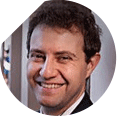 Massimiano Bucchi
Massimiano Bucchi
Science communication research over fifty years – patterns and trends
Massimiano Bucchi and Brian Trench present an outline view of commentary, research and analysis in science communication over the past fifty years.
The presenters have edited a four-volume anthology of 80 ‘major works’ in the field to be published in 2015 (Routledge). From scattered beginnings, analytical and critical work in science communication has consolidated in the past two decades and the rate of publication has accelerated. Bucchi and Trench discuss why and how the formal professional and academic interest in understanding science communication has grown. They present some highlights from their edited collection, including neglected texts that deserve more attention.
They identify the principal strands of science communication research and summarise its achievements. But they also draw attention to some gaps and weaknesses in the rapidly growing body of literature. From the collection of works that Bucchi and Trench have assembled a picture emerges of an international community of scholars and professionals who share many interests, concerns and activities but who could benefit from more complete awareness of what has been done and is being done across this diverse field.
Wednesday, June 3rd, 8.45am
 Cheng Donghong
Cheng Donghong
Developing a Science Museum System with Chinese Characteristics: Strategy, Framework, Mechanism and Evaluation
The choice of science communication strategies is closely related to the social context in which the science communication takes place.
Preliminary testing and verification has demonstrated that taking social context as a kind of research perspective and analysis methodology to tackle the issue of strategic planning is rational and effective in the process of developing a science museum system with Chinese characteristics. Modern science museums (science centres) are not only crucial institutions providing a public science communication service, but also efficient platforms for public engagement in science and technology. Therefore, to some extent, the prosperity and development of science museums represent the situation of scientific culture in society. Based upon the analysis and understanding of its own social context while learning from the experiences of other countries, China forms its development strategy for science museums with Chinese characteristics, that is, a science museum system with a framework and operating mechanism adapted to the social context in China.
This report firstly introduces the features of the social context for Chinese science museum development, and the strategic planning of a science museum system composed of entitative science museums (with buildings), mobile science museums, and digital science museums. Then the report describes respectively the routines, development status and correlations of the above-mentioned three components of the system according to an evidence-based study and relevant survey data.
Thursday, June 4th, 8.30am
 Sook-Kyoung Cho
Sook-Kyoung Cho
Curating the future: the science museum for creativity and sustainability
The science museum has greatly contributed to narrow the gap between science and the public on the basis of its concepts from eyes-on to hands-on and hands-on to hearts-on or feelings-on. By emphasizing communication and engagement rather than collection and exhibition, it has evolved from science museum to science center during the 20th century. The Korean government has invested great energy in establishing new science centers for connecting science and society under the “Science Korea Movement” from 2004 onwards.
As a result, the number of science museums rose to 117 in 2013 from 62 in 2007. On the basis of the feelings-on concept of the science museum, where individual creativity and the community’s sustainability are important factors, I will talk about what science centers should do for ‘science and the public’ and for ‘society and the future’. By introducing and critically reviewing recent experiences of education and exhibition of the Gwang-ju National Science Museum (GNSM), I will suggest what science communicators can do for science communication and science culture at a science museum.
Thursday, June 4th, 8.30am
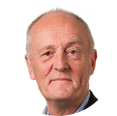 Alan Irwin
Alan Irwin
Citizen Science and Scientific Citizenship: same words, different meaning?
‘Citizen science’ is open to many definitions. It often represents a kind of ‘big data’ extension to existing scientific projects, drawing in the larger publics to assist with information and observation gathering and, to some degree, analysis. At times also, it can be presented as a means of scientific outreach and dissemination.
Most radically, it can be considered as one step towards greater public engagement with – and democratic accountability over – the direction and form of scientific research. At a time when ’citizen science’ seems to be increasingly adopted by scientific institutions world-wide, this session aims to ask questions about the relationship between citizen science and wider issues of scientific citizenship.
Especially over the last decade, more critical interpretations of citizen science as an important locus for socio-technical engagement have very often lost out to a less reflective perspective – so that the emphasis has been on ‘how citizens can help science’ rather more than on ‘how scientists can learn from citizens’. Does this mean that citizen science is doomed to operate within a narrow scientistic framework or does it have the potential to stimulate larger and more democratic action?
Wednesday, June 3rd, 8.45am
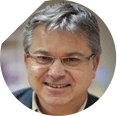 Pierre-Benoît Joly
Pierre-Benoît Joly
Science-Society Relations Seen through the Prism of Techno-Scientific Promises
While some policymakers were still wondering recently “How can we restore confidence in science?”, it is today agreed that relations between science and societies are good, that the appetite for knowledge remains strong, that as a whole, the French have more faith in research than in other institutions.
It is recognised that the problem is the relation not so much to science as to its applications, which would explain the oppositions and resistances to techno-science. For some, this can be attributed to a lack of knowledge and perception biases which need correcting. With numerous analyses demonstrating that such a belief is unfounded, we need to look for other explanations. This paper explores the role played by the rhetoric of techno-scientific promises which has become predominant.
Friday, June 5th, 2.45pm
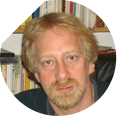 Pablo Kreimer
Pablo Kreimer
Public Understanding of Science and Science and Technology Studies: convergence or parallel paths?
This talk revolves around the following question: to what degree do Science and Technology Studies (STS) and work in Public Understanding of Science (PUS) share their theoretical framework, thematic concerns and epistemological bases? Is there a single major area, or are there fields working in parallel?
The presentation is organised in three parts. In a first part, we will show the emergence of “science studies” in three contexts: the United States, Europe and Latin America. In the second part, we will analyse the relationships between Science and Technology Studies (STS) and Public Understanding of Science (PUS). The third part is devoted to the analysis of three meeting zones: 4S (in particular American), EASST (European) and ESOCITE (Latin American), in order to examine interactions between the two fields.
Thursday, June 4th, 8.30am
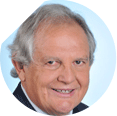 Jean-Yves Le Déaut
Jean-Yves Le Déaut
30 years at the OPECST, 30 years evaluating before legislation
The role of the Office parlementaire d’évaluation des choix scientifiques et technologiques (Parliamentary Committee for the evaluation of scientific and technological choices), set up by an Act of Parliament passed on the 8th July 1983, and made up of députés and sénateurs – members of the lower and upper houses of the French Parliament – is to inform Parliament on the consequences of its choices in scientific and technological fields. Referrals, which may be passed on by different parliamentary bodies, are entrusted to a committee member.
The latter, after conducting hearings and field missions and consulting experts, draws up a report which is submitted to all the members of the Office, who decide on its publication. An exclusively parliamentary body, the Office is totally independent of the Government and state administrations. OPECST reports result in recommendations which feed into the legislative work which is then carried out by the standing committees of the Assemblée nationale and the Sénat. The committees themselves conduct inquiries, calling on the main interlocutors in the subject of the legislative debates.
But they concentrate above all on the problems of political importance. The specific contribution of the Office lies in shedding light on more technical aspects through consultation of the scientific community and the various analyses they produce on the one hand, and on the other, through missions abroad in order to explore possible avenues of research which would enable them to bridge any divisions arising in the French national debate.
Friday, June 5th, 2.45pm
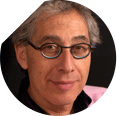 Marc Lipinski
Marc Lipinski
Citizens in science
Numerous examples of citizen science projects demonstrate that an active engagement of non professional volunteers can usefully and efficiently complement the work of professional scientists and produce important new knowledge. The participation of amateurs can be motivated by a strong interest in science and/or by a taste for on-line competition in gamified projects.
Striking results have been obtained through ambitious research programs proposed by scientists confronted with data too massive to be analyzed with available ressources. Conversely, groups of citizens acting within civil society organizations may be the driving force in defining and carrying out specific studies conducted at a more local level in close cooperation with professional scientists.
The natural world, the environment, health and disease topics are typical fields explored through citizen science projects. Although not new in History for amateurs, such participation in the making of science now benefits from and relies upon widely accessible digital tools and the use of social media. Cooperation between citizens and researchers should be encouraged and better supported institutionally for the mutual benefit of all shareholders in society.
Thursday, June 4th, 8.30am
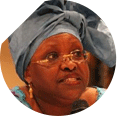 Elizabeth Rasekoala
Elizabeth Rasekoala
Science Communication in a Post-2015 World: the nexus of Trans-national, Multi-disciplinary and Socio-cultural contexts
The Post-2015 global sustainable development landscape is highly predicated on the stark challenges of the nexus of trans-national, multi-disciplinary and socio-cultural contexts. The role of science and its communication in this complex arena is one in which the ‘business as usual’ modus operandi will not suffice. The myriad and intractable development challenges to which science communication should contribute to highlighting and promoting the pivotal role of science, is profound. The Ebola crisis in West Africa and its global ramifications is a classic case in point, of the convolutions of this nexus of parameters and how they have come together in a ‘perfect storm’ to challenge the orthodoxy of current science communication, science and society discourses and approaches, and socio-cultural dimensions of how people and communities conceptualise and understand the ‘scientific’ notions of risk and uncertainty.
There is a growing acknowledgement that multi-disciplinary scientific endeavour is critical to enabling societies to overcome multiple development challenges. The imperative of multi-disciplinarity should thus, then also apply in the ways that science is communicated, in terms of the what, the how, the where, the tools, the methodologies, etc. The craft of science communication thus, needs a root and branch overhaul to deliver the transformative innovations required in this challenging new framework. Key signposts to this overhauled Post-2015 science communication framework should include:
- Citizen-centred approaches, prioritising gendered social and cultural dimensions to transform the euro-centric and masculine-biased initiatives that currently dominate.
- Social scientists should be actively involved to help address socio-cultural contexts.
- Effective joint leadership and control comprising local actors (governments, civil society and community-based organisations) as well as international groups.
- Emphasis on the long-term sustainability of initiatives to be achieved, such as the training of a new generation of multi-disciplinary science communicators and journalists, to work for and with their fellow citizens to communicate the pivotal role of science in sustainable development and the betterment of societies, in an inclusive and empowering dynamic.
Wednesday, June 3rd, 8.45am
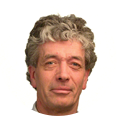 Brian Trench
Brian Trench
Science communication research over fifty years – patterns and trends
Massimiano Bucchi and Brian Trench present an outline view of commentary, research and analysis in science communication over the past fifty years.
The presenters have edited a four-volume anthology of 80 ‘major works’ in the field to be published in 2015 (Routledge). From scattered beginnings, analytical and critical work in science communication has consolidated in the past two decades and the rate of publication has accelerated. Bucchi and Trench discuss why and how the formal professional and academic interest in understanding science communication has grown. They present some highlights from their edited collection, including neglected texts that deserve more attention.
They identify the principal strands of science communication research and summarise its achievements. But they also draw attention to some gaps and weaknesses in the rapidly growing body of literature. From the collection of works that Bucchi and Trench have assembled a picture emerges of an international community of scholars and professionals who share many interests, concerns and activities but who could benefit from more complete awareness of what has been done and is being done across this diverse field.
Wednesday, June 3rd, 8.45am
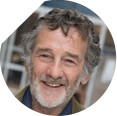 Brian Wynne
Brian Wynne
Babel Unbound? What are We Communicating, when we Communicate Science?
Science communication in its varying forms is a central element of the growing density of communications which make up modern life. A science-informed society would be one which is not only provided with adequate scientific understanding of things and ideas and claims which matter. As some communications theorists have noted, to be informed by science is also to be shaped by (in-formed by) science. Thus as STS specialists have emphasised, public understanding of science in the form of scientifically-validated understanding of scientific propositional knowledge, is seamlessly mixed up - and confused - with normative messages which communicators of science are also transmitting to their audiences, whether or not they also intend to do this.
There are many contemporary examples where scientists, who are supposed to know science, communicate their "science" in deeply normative manner. When this is treated deferentially but mistakenly as if it were communicating only science-as-understanding, then democracy is being cheated and undermined.
In this keynote lecture I will first draw some distinctions between the different meanings of "science" which are being used, and often confused, in what is typically called Science Communication, including scientific advice to policy. This will also include the many fields of public controversy involving science, in which scientific expertise has been used as attempted public authority for commercial technological innovations, or promised innovations, in society.
I will then use some case-studies to show how science communication typically involves not simply providing established scientific understanding to enlighten legitimately normative policy choices or commitments, but also imposing what are allowed to count as the authoritative public meanings of such issues. I finish by arguing that science communications processes and practitioners need to be able to distinguish between these two quite different public roles for science, if we are to avoid a gradual descent into Babel, with science reduced to meaningless public babble.
Friday, June 5th, 2.45pm
